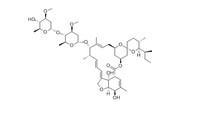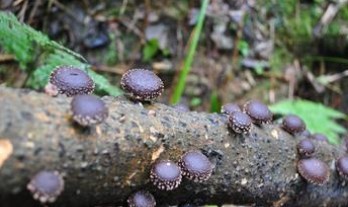Product Name: Ivermectin
CAS No.: 70288-86-7
Molecular Formula: C48H74O14
Molecular Weight: 875.09
Appearance: White crystalline powder.
Description:
Ivermectin is a broad-spectrum antiparasitic agent.
Helminth
It is traditionally used against worms.
It is mainly used in humans in the treatment of onchocerciasis, but is also effective against other worm infestations (such as strongyloidiasis, ascariasis, trichuriasis, filariasis, enterobiasis and some epidermal parasitic skin diseases (EPSDs), including scabies.
Ivermectin, under the brand name Mectizan, is currently being used to help eliminate river blindness (onchocerciasis) in the Americas, and to stop transmission of lymphatic filariasis and onchocerciasis around the world.Currently, large amounts of ivermectin are donated by Merck to fight river blindness in countries unable to afford the drug.The disease is endemic in 30 African countries, six Latin American countries, and Yemen, according to studies conducted by the World Health Organization.The drug rapidly kills microfilariae, but not the adult worms. A single oral dose of ivermectin, taken annually for the 10-15 year life span of the adult worms, is all that is needed to protect the individual from onchocerciasis.
Arthropod
More recent evidence supports its off-label use against arthropods:
Mites such as scabies.It is usually limited to cases that prove resistant to topical treatments and/or which present in an advanced state (such as Norwegian scabies).
Lice. Ivermectin lotion (0.5%) is FDA approved for patients 6 months of age and older.
Veterinary use
Ivermectin is also used in veterinary medicine. It is sometimes administered in combination with other medications to treat a broad spectrum of animal parasites. Some dog breeds (especially the Rough Collie, the Smooth Collie, the Shetland Sheepdog and the Australian Shepherd), though, have a high incidence of a certain mutation within the MDR1 gene; affected animals are particularly sensitive to the toxic effects of ivermectin.[14] Clinical evidence suggests that kittens are susceptible to ivermectin toxicity.[15] A 0.01% ivermectin topical preparation for treating ear mites in cats (Acarexx) is available.
Ivermectin is sometimes used as an acaricide in reptiles, both by injection and as a diluted spray. While this works well in some cases, care must be taken, as several species of reptile are very sensitive to ivermectin. Use in turtles is particularly contraindicated.









